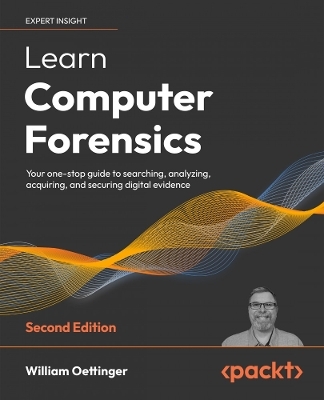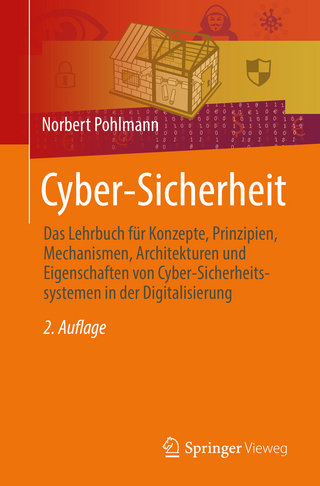
Learn Computer Forensics – 2nd edition
Packt Publishing Limited (Verlag)
978-1-80323-830-2 (ISBN)
Key Features
Investigate the core methods of computer forensics to procure and secure advanced digital evidence skillfully
Record the digital evidence collected and organize a forensic examination on it
Perform an assortment of Windows scientific examinations to analyze and overcome complex challenges
Book DescriptionComputer Forensics, being a broad topic, involves a variety of skills which will involve seizing electronic evidence, acquiring data from electronic evidence, data analysis, and finally developing a forensic report.
This book will help you to build up the skills you need to work in a highly technical environment. This book's ideal goal is to get you up and running with forensics tools and techniques to successfully investigate crime and corporate misconduct. You will discover ways to collect personal information about an individual from online sources. You will also learn how criminal investigations are performed online while preserving data such as e-mails, images, and videos that may be important to a case. You will further explore networking and understand Network Topologies, IP Addressing, and Network Devices. Finally, you will how to write a proper forensic report, the most exciting portion of the forensic exam process.
By the end of this book, you will have developed a clear understanding of how to acquire, analyze, and present digital evidence, like a proficient computer forensics investigator.What you will learn
Explore the investigative process, rules of evidence, legal process, and ethical guidelines
Understand the difference between sectors, clusters, volumes, and file slack
Validate forensic equipment, computer program, and examination methods
Create and validate forensically sterile media
Gain the ability to draw conclusions based on the exam discoveries
Record discoveries utilizing the technically correct terminology
Discover the limitations and guidelines for RAM Capture and its tools
Explore timeline analysis, media analysis, string searches, and recovery of deleted data
Who this book is forThis book is for IT beginners, students, or an investigator in the public or private sector. This book will also help IT professionals who are new to incident response and digital forensics and are looking at choosing cybersecurity as their career. Individuals planning to pass the Certified Forensic Computer Examiner (CFCE) certification will also find this book useful.
William Oettinger is a veteran technical trainer and investigator. He is a retired police officer with the Las Vegas Metropolitan Police Department and a retired CID agent with the United States Marine Corps. He is a professional with over 20 years of experience in academic, local, military, federal, and international law enforcement organizations, where he acquired his multifaceted experience in IT, digital forensics, security operations, law enforcement, criminal investigations, policy, and procedure development. He has earned an MSc from Tiffin University, Ohio. When not working, he likes to spend time with his wife and his three miniature schnauzers.
Table of Contents
Types of Computer-Based Investigations
The Forensic Analysis Process
Acquisition of Evidence
Computer Systems
Computer Investigation Process
Windows Artifact Analysis
RAM Memory Forensic Analysis
Email Forensics – Investigation Techniques
Internet Artifacts
Online Investigations
Networking Basics
Report Writing
Expert Witness Ethics
Assessments
| Erscheinungsdatum | 10.08.2022 |
|---|---|
| Verlagsort | Birmingham |
| Sprache | englisch |
| Maße | 191 x 235 mm |
| Themenwelt | Informatik ► Netzwerke ► Sicherheit / Firewall |
| ISBN-10 | 1-80323-830-5 / 1803238305 |
| ISBN-13 | 978-1-80323-830-2 / 9781803238302 |
| Zustand | Neuware |
| Haben Sie eine Frage zum Produkt? |
aus dem Bereich


